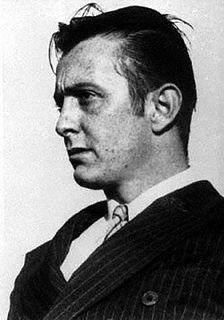A Quote by J. V. Cunningham
The writer asks himself, 'Can I think of a plot that will parallel this? Can I take this work of literature as an example of something I might produce?' Let us, then, consider literature as a productive science.
Related Quotes
It seems to me that literature is giving way a little bit to the immediacy of other diversions, other forms of entertainment. What will it be in fifty years? I don't know. Will there be printed books? Probably, but I'm not sure. There's always going to be literature, though. I believe that. I think literature has a way of getting deep into people and being essential. Literature has its own powers.
Not to say that the process assumes anything of "greater" or "lesser" importance, though: it's just more graphic information. Take the surrealists, for example, or a work by Cage. For me, there's a great value in doing this with literature. There's a certain form of dependence; process and product inform each other, depend on each other. I consider myself a writer who doesn't write with a style, almost. I begin with tension, with a vibe, a character.
Listen closely. There’s a remote possibility that you might learn something: First, I don’t give a damn if my work is commercial or not…I’m the writer. If what I write is good, then people will read it. That’s why literature exists. An author puts his heart and guts on the page. For your information, a good novel can change the world. Keep that in mind before you attempt to sit down at a typewriter. Never waste time on something you don’t believe in yourself.
Science is a capital or fund perpetually reinvested; it accumulates, rolls up, is carried forward by every new man. Every man of science has all the science before him to go upon, to set himself up in business with. What an enormous sum Darwin availed himself of and reinvested! Not so in literature; to every poet, to every artist, it is still the first day of creation, so far as the essentials of his task are concerned. Literature is not so much a fund to be reinvested as it is a crop to be ever new-grown.
Literature, real literature, must not be gulped down like some potion which may be good for the heart or good for the brain—the brain, that stomach of the soul. Literature must be taken and broken to bits, pulled apart, squashed—then its lovely reek will be smelt in the hollow of the palm, it will be munched and rolled upon the tongue with relish; then, and only then, its rare flavor will be appreciated at its true worth and the broken and crushed parts will again come together in your mind and disclose the beauty of a unity to which you have contributed something of your own blood.
If you can imagine the story of the world as a giant movie, to not have some understanding of the Bible - its story, its history, and its impact - would be like watching a great movie and removing part of the plot. It can't be done. The real truth is that everyone regardless of faith tradition benefits from knowing and understanding these aspects of the Bible. It enhances one's knowledge of literature, science, art etc. It's difficult to read any classic work of literature for instance and not see biblical allusions.







































